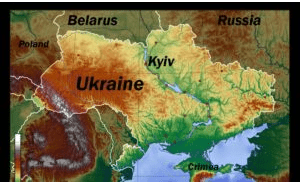Germany’s main opposition party and the governing coalition have agreed to continue with the significant increase in defense spending that Chancellor Olaf Scholz announced three years ago.
Scholz welcomed Monday’s agreement, saying that it was “the right answer to the turning points that began with Russia’s attack on Ukraine”.
Three days after Russia invaded Ukraine, the German leader stated that Germany would contribute 100 million euros ($107bn), to a special fund for its army and increase its defense spending above 2 percent of its gross domestic product (GDP), something it has long been slow in implementing.
Scholz stated Monday that the German Bundeswehr would be strengthened at a Hannover trade fair, according to the DPA news agency. It will be better equipped to fulfill its defense mission and will be able to make its contribution to NATO to help us defend ourselves against any attack from the outside.
Scholz said, “This will contribute towards the security of Germany increasing.” Scholz wanted to include the special fund in the constitution. This requires a two-thirds majority in both chambers of parliament. Scholz also needed the support of the Union bloc, which is center-right.
Talks got tangled up in details but on Sunday, the parties reached an agreement that will allow the fund to be brought to parliament.
The regular budget of Germany will fund cyber-defense and support to partner countries, rather than the special fund that some members of the ruling coalition proposed.
The Union bloc demanded assurances that the funds would be used only for the German military and the Bundeswehr.
NATO’s spending goal
The finance ministry circulated a statement confirming Sunday’s agreement that NATO’s 2 percent target would be met “on a multiyear average”.
Saskia Esken (leader of Scholz’s SPD) cited fluctuating armament procurement as the reason that exact compliance with the NATO 2 percent target was not possible each year.
Esken stated that “if you order major equipment now, it won’t be available for three to four years.” The comments were published in Sunday’s Frankfurter Allgemeine Zeitung. “This means that the initial two years are likely to be less expensive, but then you will need to spend a lot more.
After the Cold War ended, NATO countries cut their military budgets. However, they were re-incited to take action after Russia annexed the Crimean Peninsula of Ukraine in 2014.
Allies promised to stop the cuts and shift towards spending 2 percent of GDP by 2024.
Germany was criticized by the United States, especially Donald Trump, for not meeting that goal.
The German government has agreed to release 100 billion euros ($107 million) to modernize the army amid the ongoing Russia-Ukraine war. Russia is still a threat to members of the North Atlantic Treaty Organization (NATO).
With the support of the conservative opposition who also agreed to create an extra fund for military procurement, the agreement was reached. This agreement would allow Berlin to reach NATO’s goal of spending 2 percent of its Gross Domestic Product (GDP), on defense.
After weeks of negotiations between the ruling coalition and the opposition party headed by Angela Markel, the former chancellor, the deal was reached. The agreement would allow for amendments to Germany’s national budget.



































